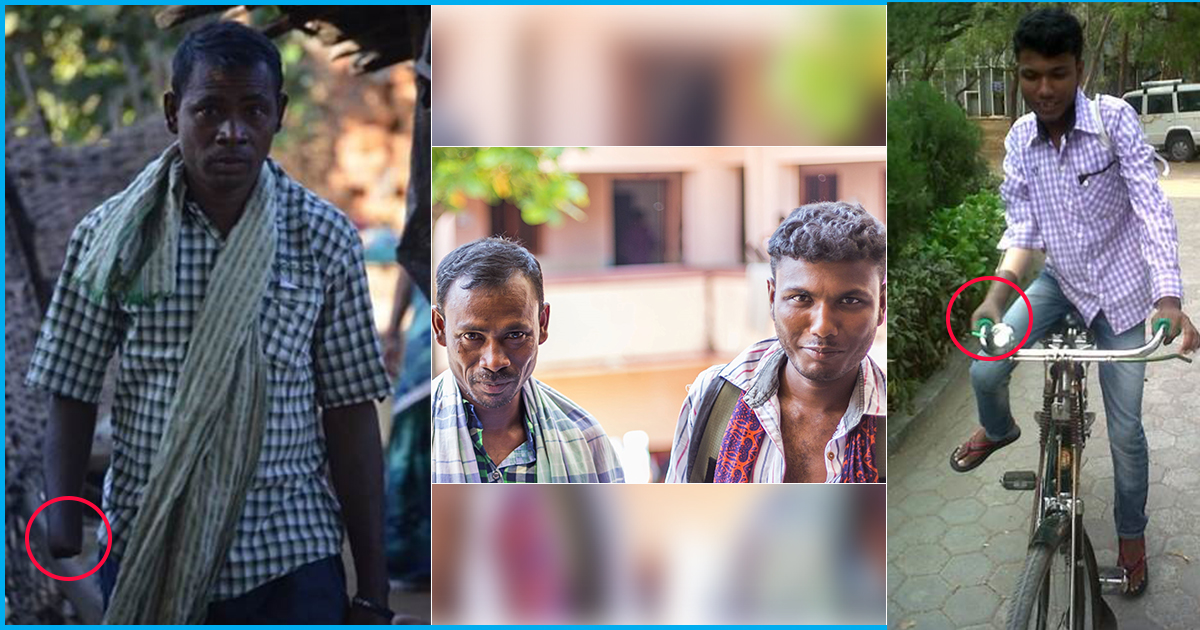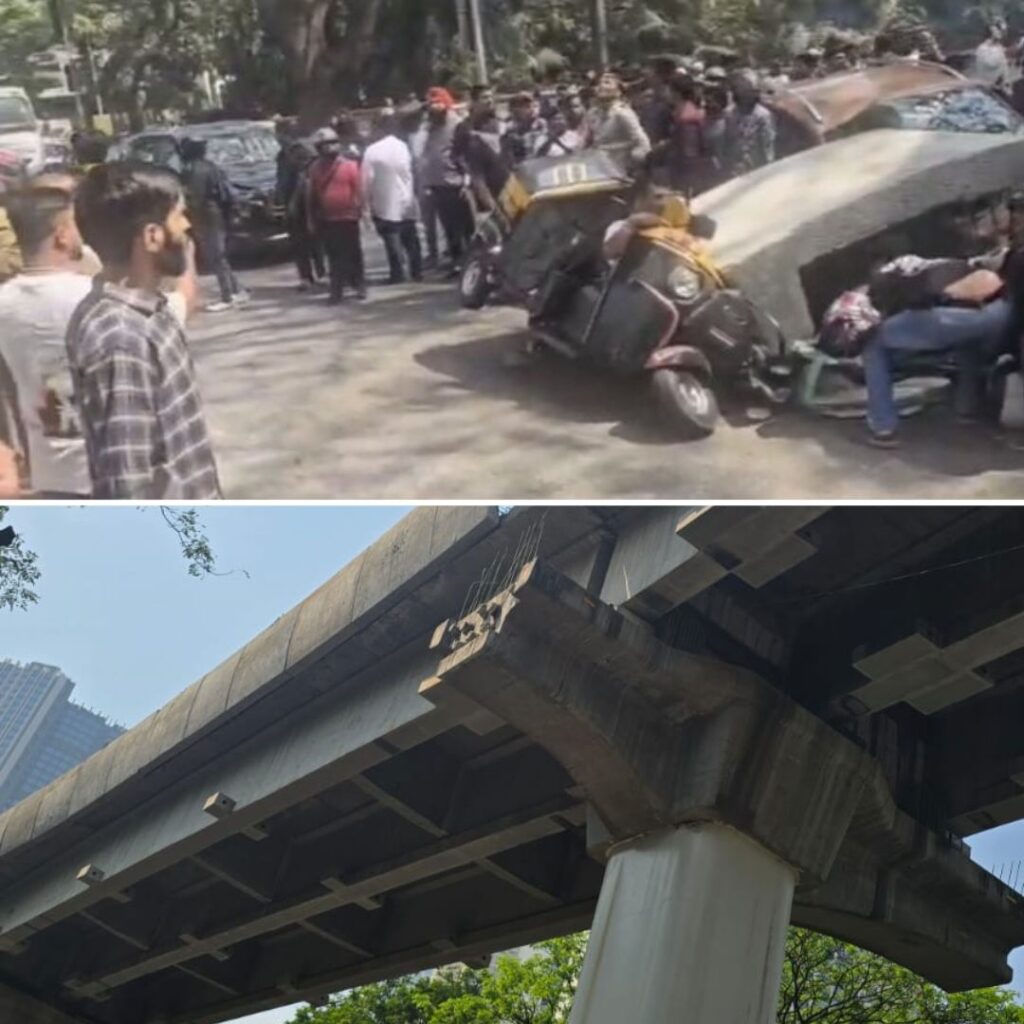Five years ago, two men from Odisha – Dialu and Nilambar – ran as fast as they could, away from drunk labour contractors and hoped to make it alive to a hospital for help. It was wee hours in the morning and there wasn’t a person in sight. Using plastic covers found on the road, the two men, covered their exposed and profusely bleeding right hands. The drunk men had chopped off the right hands of Dialu and Nilambar at their wrists.
It all started when labour contractors approached Dialu, Nilambar and 10 others in their village in Odisha. “The labourers were promised jobs that paid Rs 10,000 – 20,000 salary per month and an additional Rs 14,000 in hand to those who agreed,” said Ms Roseann Rajan, Advocate from the Madras High Court, who assisted the prosecution in this case. “But they were paid only Rs. 10,000 which was later retrieved when they were tricked into boarding a train to Andhra Pradesh.” En route, the men sensed trouble and decided to escape. While 10 of them escaped, Dialu and Nilambar were caught. The contractors covered their mouths from behind and forcefully took them to the middleman’s house. For the next few days, they suffered under the hands of the contractors. All day they were forced to work in the middleman’s house, and every evening, they faced extreme physical torture from the alcohol-influenced contractors. Demanding over two lakhs from Dialu and Nilambar as a ransom for the escaped labourers, they strangled and beat them up until they were unconscious.
Early on 15th December 2013, Dialu and Nilambar were taken to a deserted forest where the labour contractors demanded money and threatened to kill them. That day, Dialu and Nilambar had to make the most painful decision of their lives, as offered by the contractors – to lose their life or limb. That is how they lost their right hands.
When India awoke to this shocking news, Judge Ananth Chandra Behra termed the incident a “heinous crime against society” and the Supreme Court sent a directive to Odisha to urgently improve its response to and take action against human trafficking.

Bonded labour and human trafficking
As listed by the Ministry of Home Affairs (MHA), bonded labour is one of the various forms of human trafficking. Human trafficking is the act of procuring a person either through deception or force. The aim is to exploit them for one’s commercial gain, commonly through sex, labour or organs. These elements are seen in bonded labour crimes as well. Middlemen or even owners of small businesses approach labourers with hard cash to entice them to move into a worksite with their families. Other common false promises include regular wages and good housing– none of which actually see the light of day. What happens instead is that the labourers are confined to the worksite. The only barrier stopping them from returning home is the dominance exercised by the owners. Threats such as, “Wherever you go, I’ll find you and bring you back” and “I’ll break your legs if you try to escape,” constantly ring in the labourers’ ears, ensuring that they stay and work out of fear. They lose their basic rights and freedom and are also subject to varying levels of exploitation including physical, verbal and sometimes sexual abuse.
Though the crime was outlawed in 1976 through the Bonded Labour System (Abolition) Act, the crime still exists. Human trafficking is one of the fastest growing criminal industries in the world. Here are two reasons why it thrives today:
Awareness is low: The crime is hidden in plain sight. Victims’ cries go unheard. Our eyes are blinded and ears deafened – our lives are driven by deadlines and responsibilities. Unless we are aware and choose to actively do something about it, the crime will continue to exist.
No fear of law: As long as the crime stays in the dark and punishments are not severe, criminals will continue to exploit people as they are simply not afraid of consequence. In other words, they are not afraid of law so nothing stops them from making massive profits from cheap labour.
Life imprisonment for bonded labour criminals
In this case, however, the eight labour contractors received their due. On 24th December 2016, they were sentenced to life imprisonment. The sentence was received under Section 370 of the Indian Penal Code and various other sections that led to a total term of life imprisonment.

Mr. Dhirendra Nath Pathra, Additional Public Prosecutor, Court of Additional District Sessions cum Special Judge, Dharamgarh District, Kalahandi, Odisha said, “Conviction under Section 370 of the Indian Penal Code requires a minimum sentence of seven years in jail, whereas these labour contractors were given ten years jail and a fine under this section, with the total sentence resulting in life imprisonment. This shows that trafficking for labour will not be tolerated under the law.”
This is the highest sentence pronounced against a labour trafficking criminal till date. It only goes to say that India is waking up to protect her people from bonded labour and human trafficking.
While the news of their cruel attackers being sentenced to life imprisonment proved to Dialu that justice is on his side, Nilambar sadly did not experience it. The legal battle stretched from 2013 to December 2016. But in September that year, Nilambar passed away from an undiagnosed medical condition.
Life today
Despite all that the government did for Dialu and Nilambar to help them recuperate – their Release Certificates, rehabilitation amounts and housing – their lives were never the same again. Today, Nilambar is survived by his wife and children who continue to live in Odisha, and young Dialu does not believe that any father would give his daughter to be wedded to a man like him. Sadly, he battles discrimination on a daily basis even though the perpetrators were accounted for.
What can we do?
This story has a tragic ending but such incidents can be prevented in the future – one at a time. Human trafficking may be a strategically planned criminal activity that thrives in plain sight but if we all work together, we can thwart their schemes.
Some of the ways in which you can play a role in fighting against and eventually ending human trafficking and bonded labour in our country are as follows:
- Share excessively – Awareness is the first step that sparks a change. Educate yourself on what the crime is about, who the victims usually are and how traffickers work. Then tell everyone and use every mode possible. You can also get regular updates on human trafficking by following ‘Shout for Freedom’ on Facebook and Instagram. A coalition of NGOs and individuals started this page to spread awareness on human trafficking in Tamil Nadu, with the hope to end the crime.
- Be alert – As stated by the Indian Railways, watch out for people who seem malnourished, restless or speak scripted/rehearsed sentences. You may even come across large groups of men, women and children carrying heavy sacks, not speaking the local language in railway stations. They could be victims of trafficking.
- Get help – When you notice such incidents, do call Railway Helpline – 182 or the Police – 100 or reach out to the local officials in the area.
About the author: Jerusha Venkatarangam works with International Justice Mission, an NGO which work against bonded labour and sex trafficking of minors.
This article is a part of the series by The Logical Indian in collaboration with International Justice Mission to create awareness on bonded labour and human trafficking.
Also Read: Just A Loan Of Rs 1000 Made This Couple & Their Children Slaves For Years













